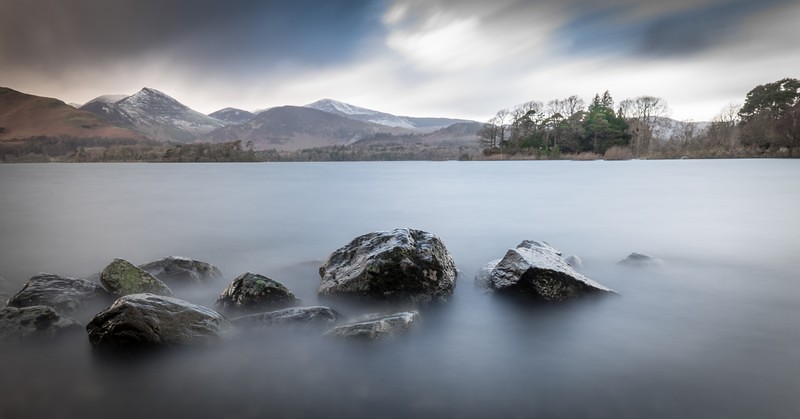Just a thought... If you can get down to the edge of the lake, you might get a more rewarding shot shooting a close up of the shore?
So instead of just seeing a flat lake (as you mention, the lake is pretty flat already!), you would see the wet stones, a misty area where the waves are lapping against the shore and a flat water surface. Particularly if you have a circular polariser so you can better see through the water.
It should also be a bit darker if you can find a bit in some shade, making longer exposures easier.
e.g.
https://www.flickr.com/photos/zboumeester/5626164317 (Not my photo - just a quick Google!)
It's easier to start learning long-exposure photography at dusk/dawn/night when exposure times will be longer naturally, without having to add filters to slow things down.
You've given yourself quite a challenge in your first photos shooting such a big expanse of flat water in very bright sunlight - especially what looks like India (Udaipur?).
Also, as Phil mentioned, it's not a great viewpoint for a normal photo, let alone a long exposure one!



 Derwent Water
Derwent Water